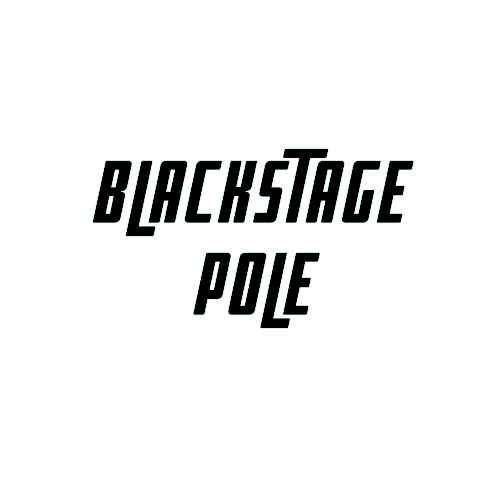What it’s like being a Black pole dancer and why we need BPOC spaces
Commissioned by Brass Monkey Issue 01, written by founder Leila Davis.
When I first started pole at 19, I was confident, self-assured and I thought I knew so much. On reflection, I hardly knew anything compared to what I know now.
I don’t think I followed a single pole dancer until I was around 23 or 24. I just didn’t like what I had already seen of the pole industry and its lack of diversity, and I wanted no part of it. The first pole dancer I ever followed was Phoenix Kazree who I was shown by my pole mum when she showed me Black girls pole. I then went on to follow Blackgirlspole because it was the content I needed.
The way racism functions within the pole world is very sly. It works by denying access to BPOC dancers, making sure that we are never seen and never valued, by placing worth on proximity to whiteness and thinness instead of skill and competence. I didn’t need to do much competing to see how racism worked in this field. I remember competing in regional and national university competitions in 2018, experiencing racist microaggressions and watching three white men place first, second and third in front of a panel of all white judges. I knew before entering the competition that this is what it would be like, and so I wasn’t shocked at the outcome, just disappointed.
Throughout my years as a black pole dancer, I’ve seen a white performer wear blackface in a competition and organisations dismiss this obvious racism, I’ve seen the cultural appropriation of twerk, transphobia, the bullying and gaslighting of black women who have spoken out against racism in this industry, the appropriation of Black Sex worker culture, I’ve heard of well-known pole brands liking racist content, countless all-white judging line ups, refusal from big names and brands in the industry to address racist actions and the list goes on. So much of my existence as a black pole dancer has been witnessing racism and trying to avoid racist spaces.
In 2020 during the new popularity of the Black Lives Matter Movement, there was a lot of talk around anti-racism within the pole world, a lot of performative black squares posted with no action. I didn’t really know how to respond to all of this, because I didn’t only just find out racism existed yesterday. Both my parents spent their formative years in this country and experienced extreme racist violence, almost losing their lives on several occasions. I knew from a very young age that racism was alive and well in this country and have been discussing and working on anti-racism and decolonising education and other fields since University. I just felt like all the work that a lot of black women and BPOC LGBTQIA+ people I know and know of had been doing that had been ignored, was being realised by many but only on a very shallow level.
The erasure of Sex workers within the pole industry is also something awful I’ve seen. I have friends who have been bullied by instructors for being sex workers, I’ve seen sex worker culture appropriated and mocked. This needs to stop, the current most popular sexy pole styles come from predominantly Black strip clubs in America. Homage needs to be paid to Black sex workers. When people try to distance pole from sex work, it feeds into a harmful stigma that sex workers are less than. Sex workers have a long history of experiencing over-policing and extreme violence just because of their jobs. The rules in place in our societies make it hard for sex workers to have job stability, safety, financial assistance, and adequate medical attention. Taking part of the culture from this marginalised group and then claiming that you’re not like “them” feeds into a harmful stigma that puts sex workers in danger.
I started the Blackstage IG page at the start of lockdown after hosting workshops for QTIBPOC and performing at several BPOC LGBTQIA+ events over the years. I wanted to create a permanent space for BPOC to feel safe, seen, and respected. I was blown away by how many BPOC pole dancers reached out to tell me about how they’ve felt so uncomfortable in white pole spaces, how they’ve experienced racism, and how through Blackstage they found BPOC instructors to learn from, and how they feel so much happier in life because of Blackstage. This made me know that starting Blackstage was the right thing to do.
Pole is something that can be empowering. For a lot of Black women like myself, we are hypersexualised and often made to feel like our sexuality does not belong to us, because historically it hasn’t. Pole is taking back that power. When you are a marginalised individual whose sexuality has always been scrutinised, there is something so beautiful about pole dancing and the resilience and freedom it can equip you with. In a society that does not value us or want us to express our own sexual agency, taking ownership of our sexuality as black women is one of the most radical things we can do.

